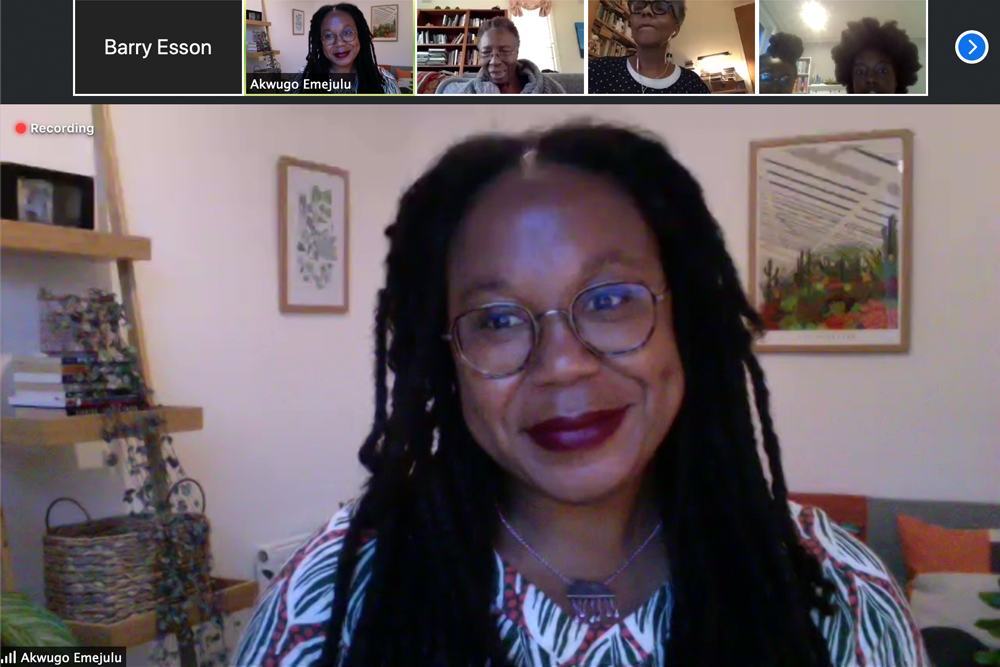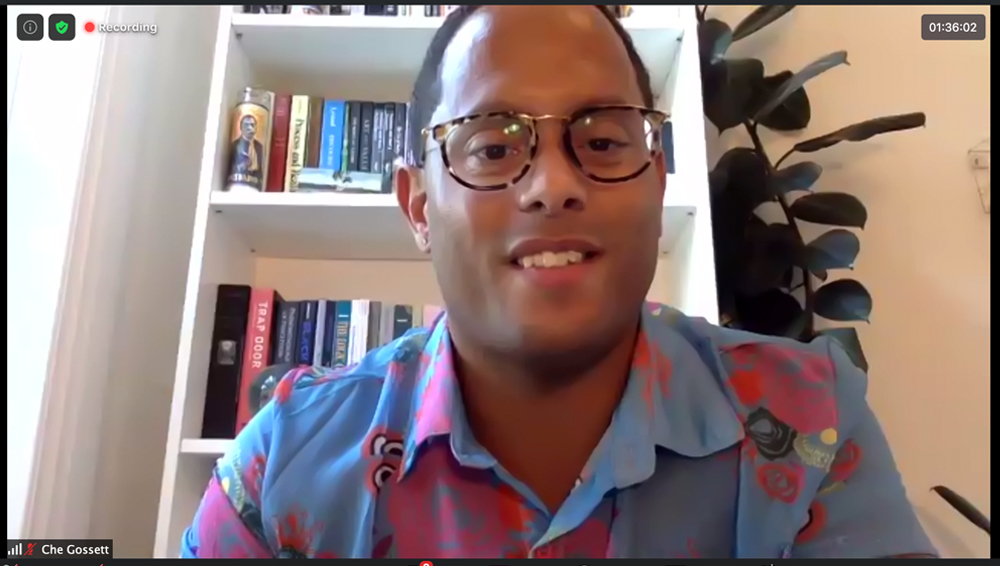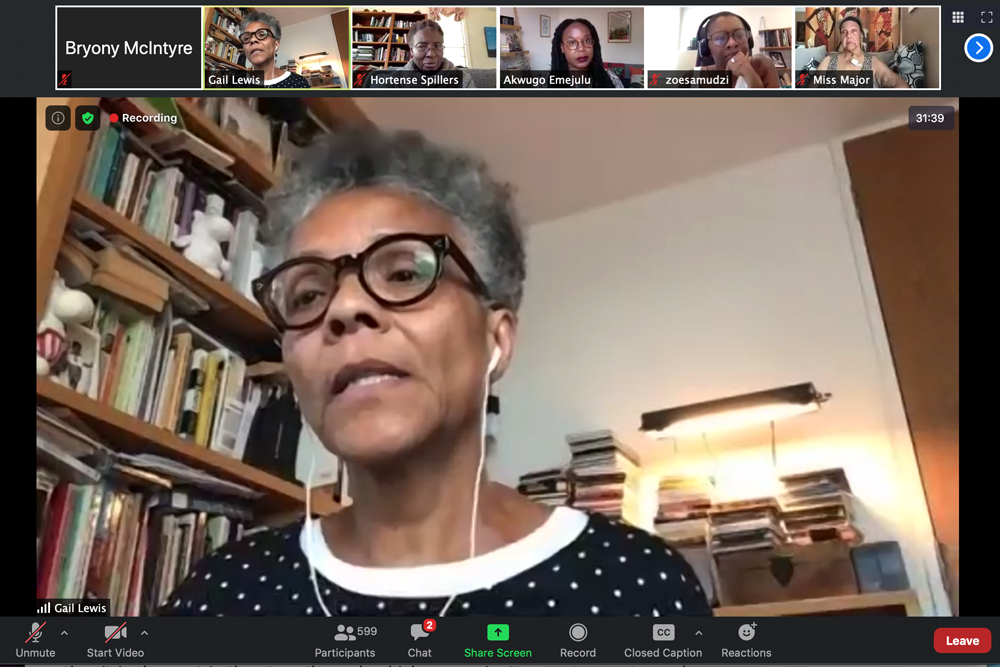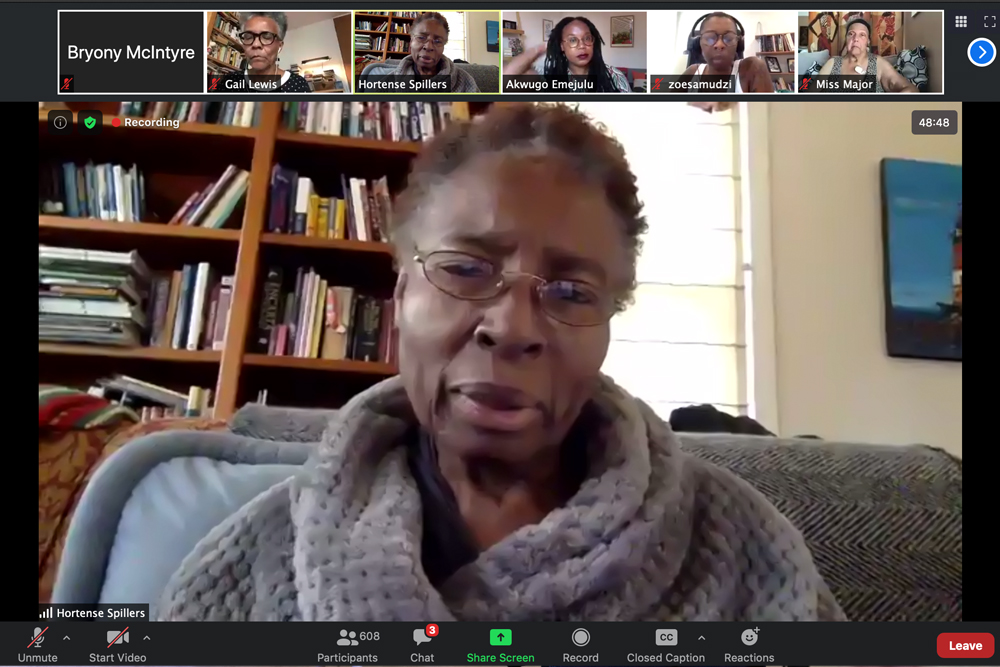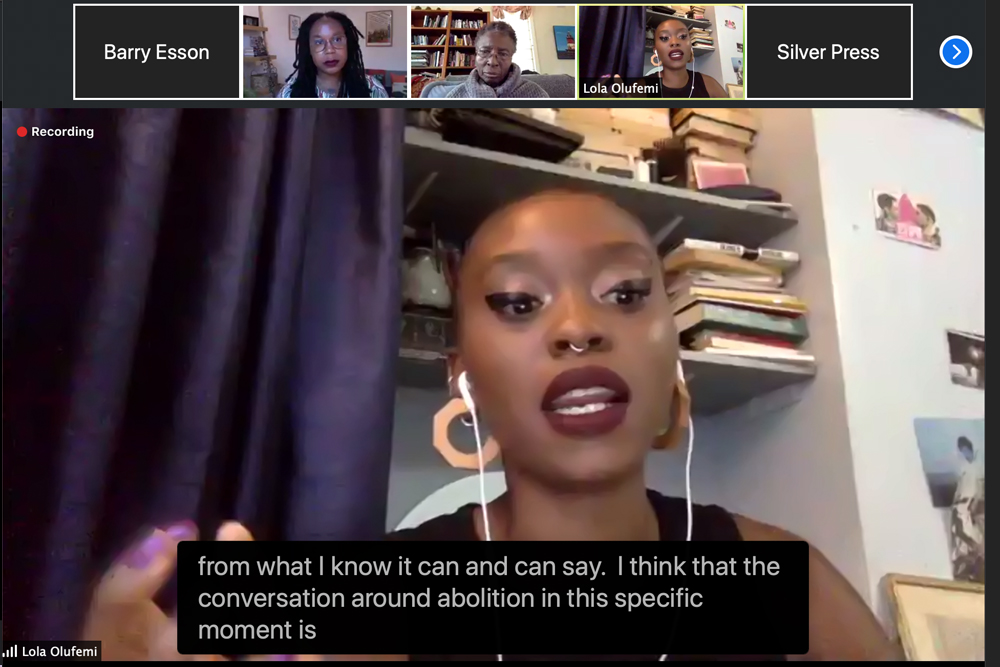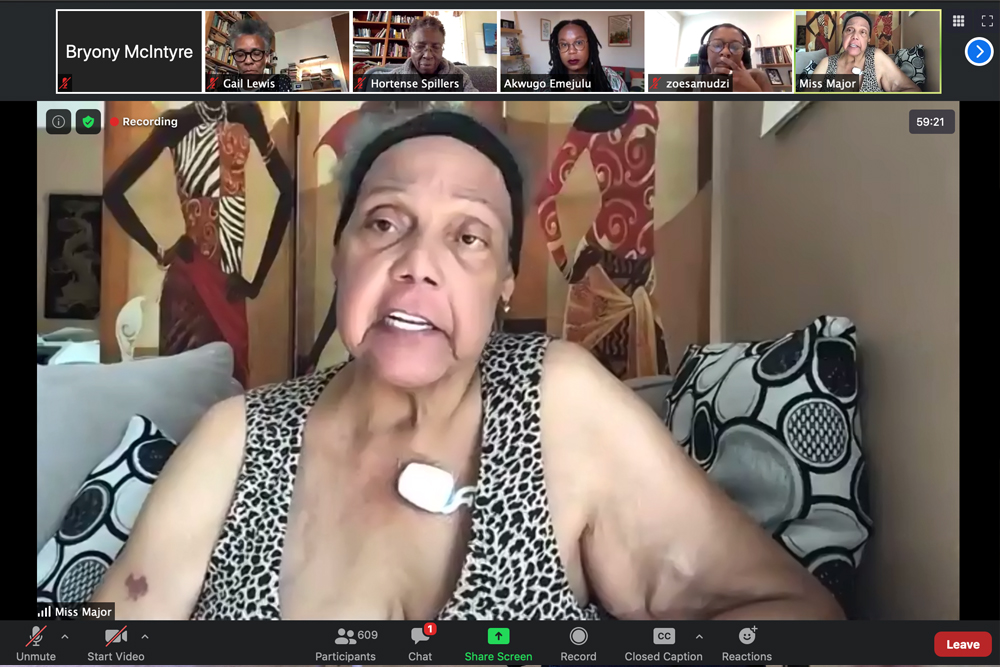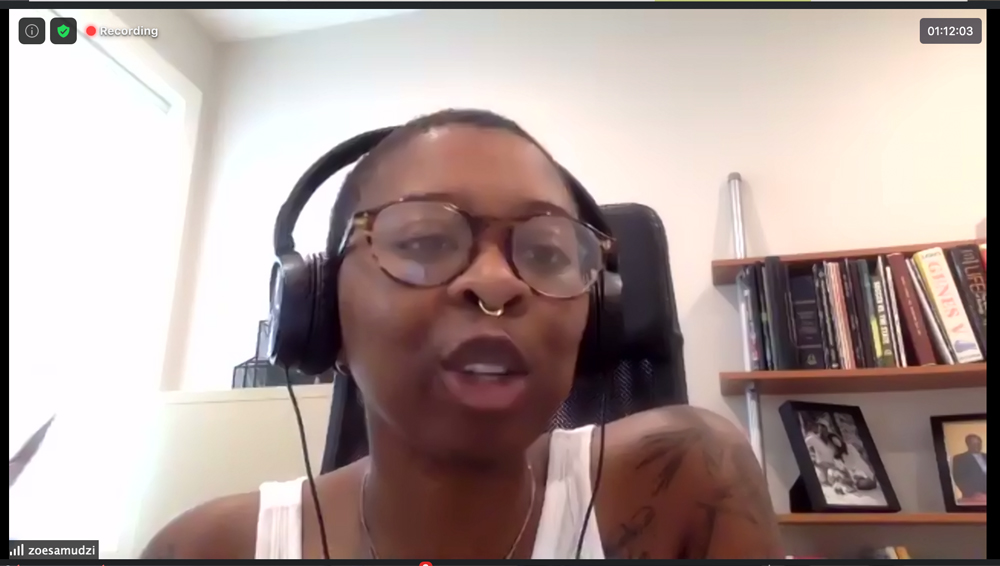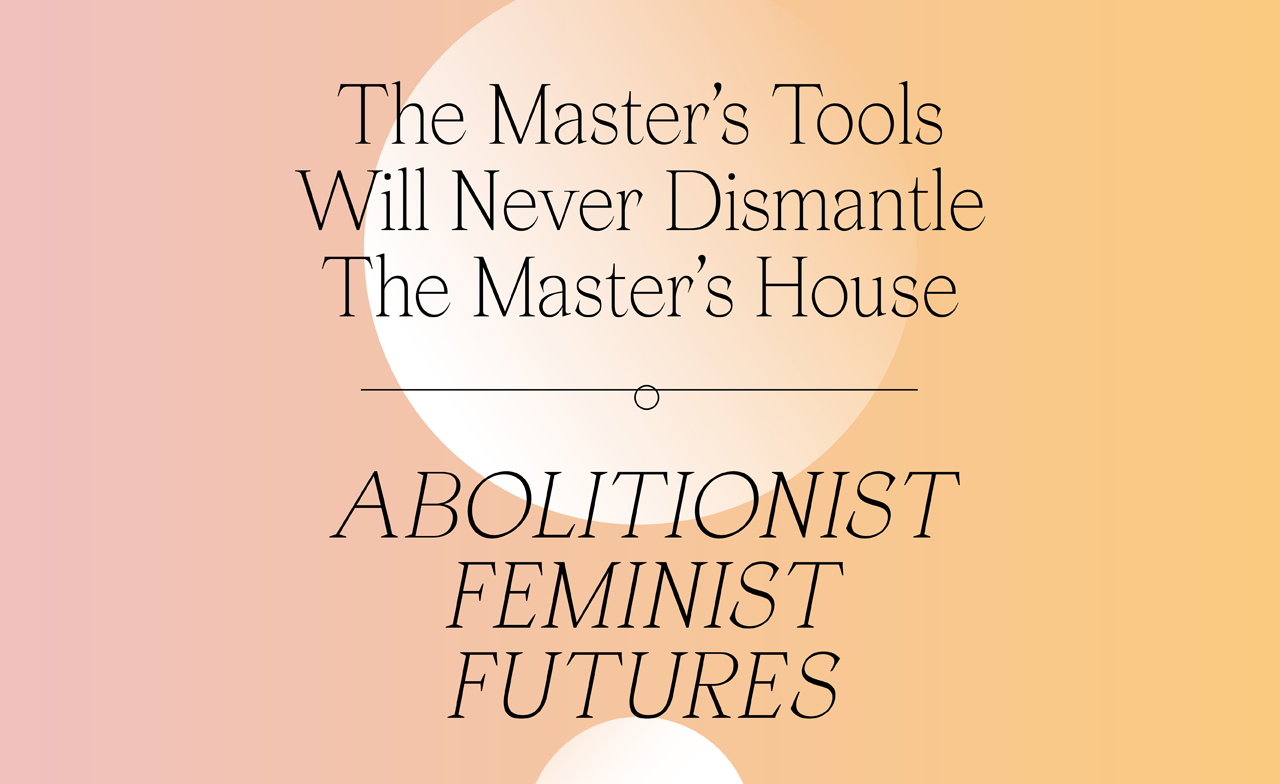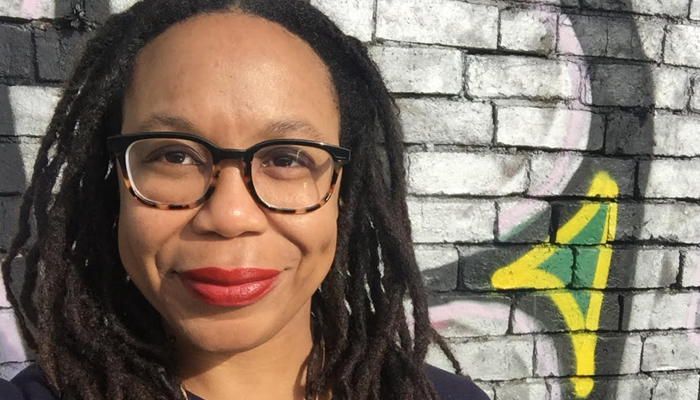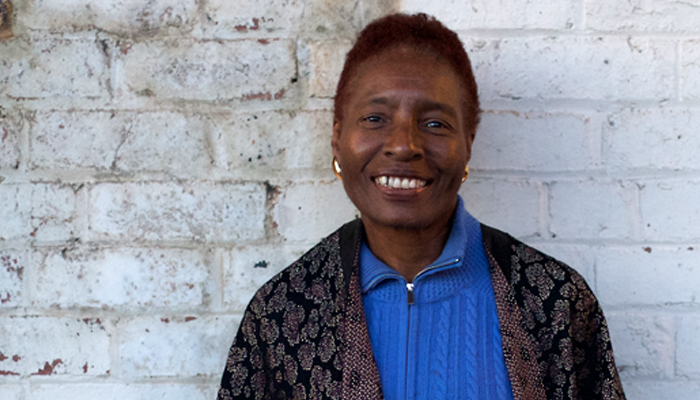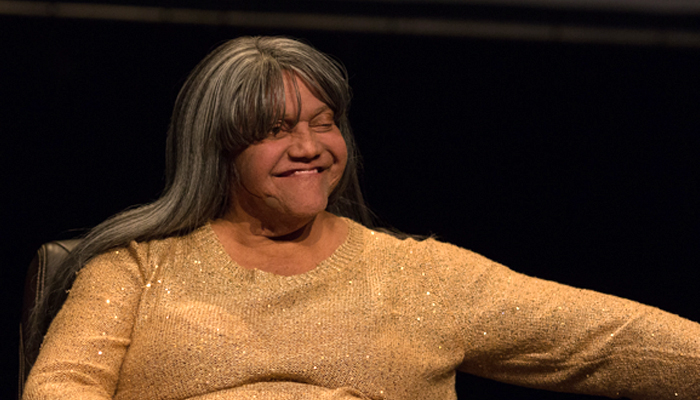The Master’s Tools Will Never Dismantle the Master’s House: Abolitionist Feminist Futures
The Master’s Tools Will Never Dismantle the Master’s House: Abolitionist Feminist Futures
A panel exploring how to dismantle the master’s house — its material edifices and ideological architecture — and the construction of abolitionist futures in the present.
ReadA panel discussion with Gail Lewis, Miss Major, Zoé Samudzi and Hortense Spillers, chaired by Akwugo Emejulu. Subtitles will be added to the video soon. A Google doc of collectively collated during the public discussion is availble here.
“What the world will become already exists in fragments and pieces, experiments and possibilities,” says Ruth Wilson Gilmore. In conversation with Black feminist forebears, such as Audre Lorde, abolitionist scholars and activists Gail Lewis, Miss Major, Zoé Samudzi and Hortense Spillers, chaired by Akwugo Emejulu, explore how to dismantle the master’s house — its material edifices and ideological architecture — and the construction of abolitionist futures in the present.
Lorde noted in 1984 that hegemonic, stratified forms of feminism can also constitute the master’s house. How can fugitive forms of organising and thinking continue to confront white feminism, racial capitalism, the violent gender binary and the carceral state? From Black Trans organising for post-incarceration re-entry services and against criminalisation, to Black feminist scholarship and psychoanalysis, to Black radical imaginations and political formations, the panel asks: What new tools and instruments can we fashion to help us dismantle the master’s house and build architectures of freedom?
Akwugo Emejulu is Professor of Sociology at the University of Warwick. Her research interests include the political sociology of race, class and gender and women of colour’s grassroots activism in Europe and the United States. She is the author of several books including Minority Women and Austerity: Survival and Resistance in France and Britain (Policy Press, 2017) and Fugitive Feminism (Silver Press, 2021). She is co-editor of To Exist is to Resist: Black Feminism in Europe (Pluto Press, 2019).
Gail Lewis is Reader Emerita of Psychosocial Studies in the Department of Psychosocial Studies, School of Social Sciences, History and Philosophy (SSHP). She joined the Department in 2013 and was Assistant Dean between 2015 and 2017. Her political subjectivity was fashioned in the generative cauldron of Black feminist and anti-imperialist activism. She was a member of Brixton Black Women’s Group and a founder member of OWAAD. She trained as a Psychodynamic Psychotherapist and as a Psychoanalytic Psychotherapist at the Tavistock and Portman Clinic. She is a Visiting Senior Scholar at the Gender Department at the London School of Economics. She holds an Honorary Doctorate from the University of Essex/Tavistock and Portman Clinic. She has published on social policy, feminism and psychodynamics of organisation, always attending the processes of racialised-gendering.
A veteran of the infamous Stonewall Riots, former sex worker, and survivor of Attica State Prison, transgender elder and activist Miss Major has fought for over 40 years to create visibility and equity for trans women of color. Miss Major has built a global legacy of activism that is rooted in her own experiences, and will continue to pave the way for transgender women of color, particularly those who have survived incarceration and police brutality.
Zoé Samudzi is a writer and PhD candidate in Medical Sociology at the University of California, San Francisco. Her research analyzes German colonisation, colonial biomedicine, and the genocide against Herero and Nama and San peoples in Namibia (1904-08) and its scientific afterlife. Along with William C. Anderson, she is the co-author of As Black as Resistance: Finding the Conditions for Our Liberation (AK Press). She is currently a research fellow with Political Research Associates.
Hortense Spillers is the Gertrude Conaway Vanderbilt Professor in the English Department at Vanderbilt University, where she has been on faculty since 2006. She is the editor (along with Marjorie Pryse) of Conjuring: Black Women, Fiction, and Literary Tradition (1985) and Comparative American Identities: Race, Sex, and Nationality in the Modern Text (1991). She published a collection of essays, Black, White, and in Color: Essays on American Literature and Culture (2003), which spans the breadth of her professional interests in African American culture and history.
Documentation
